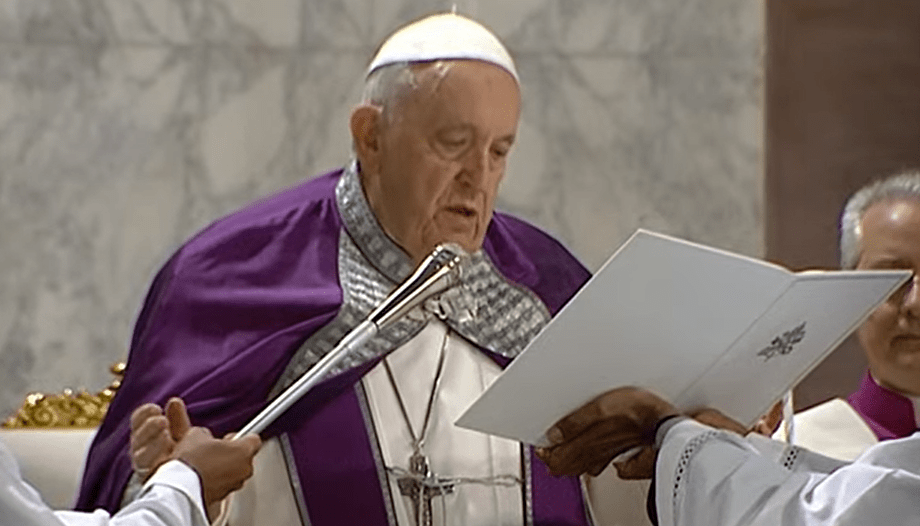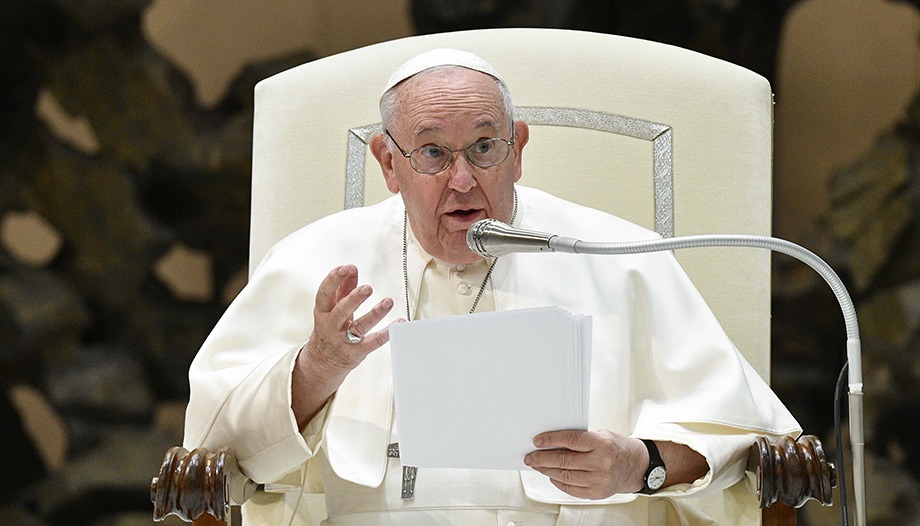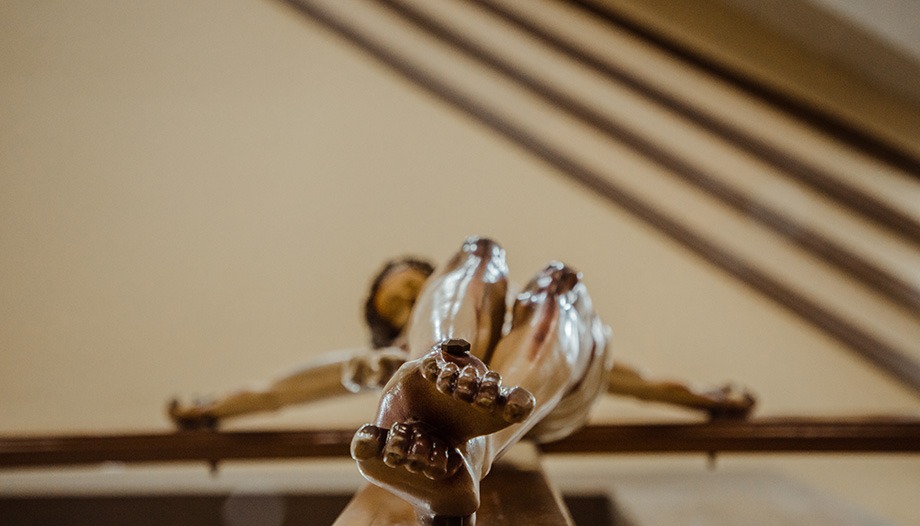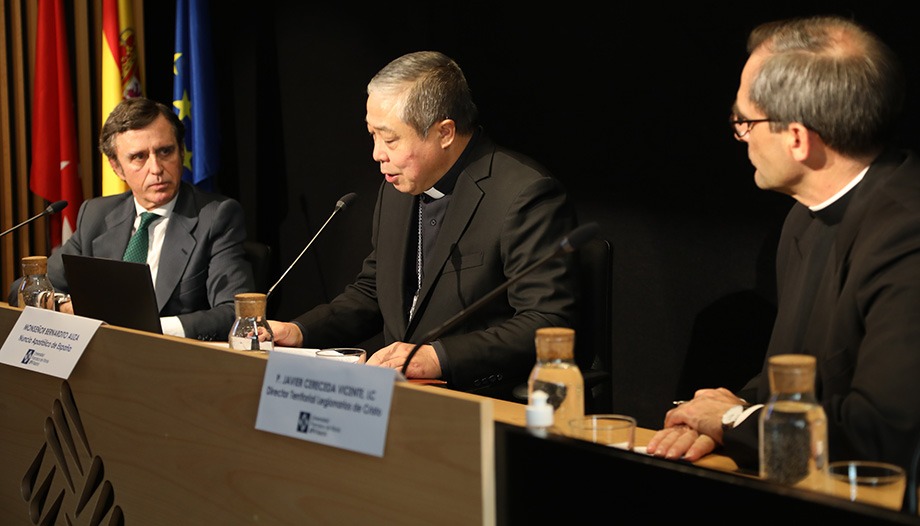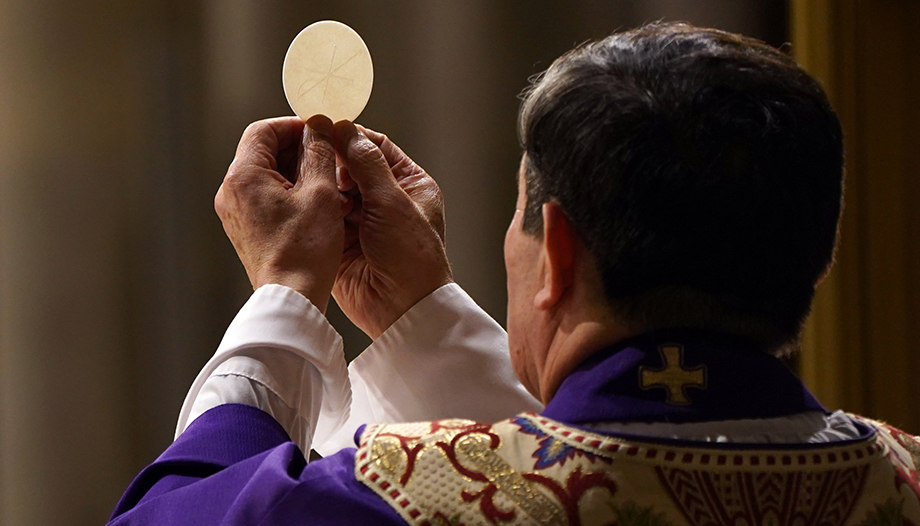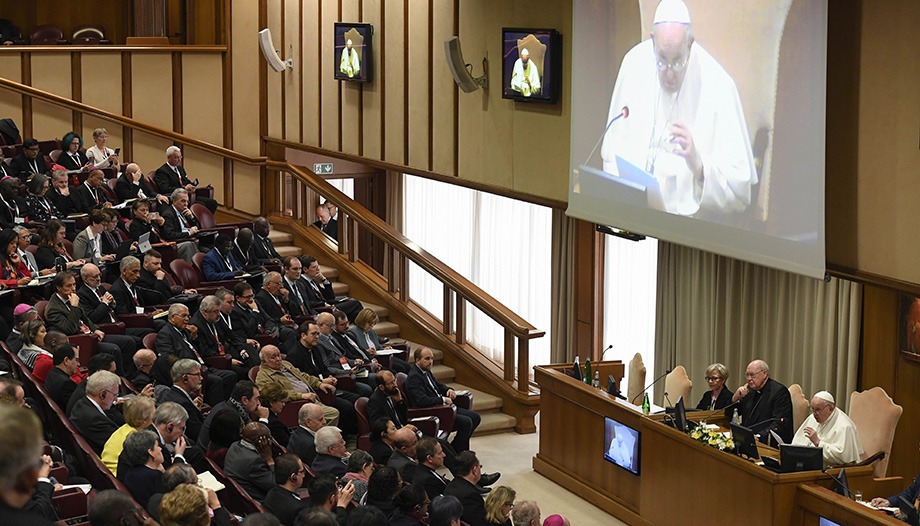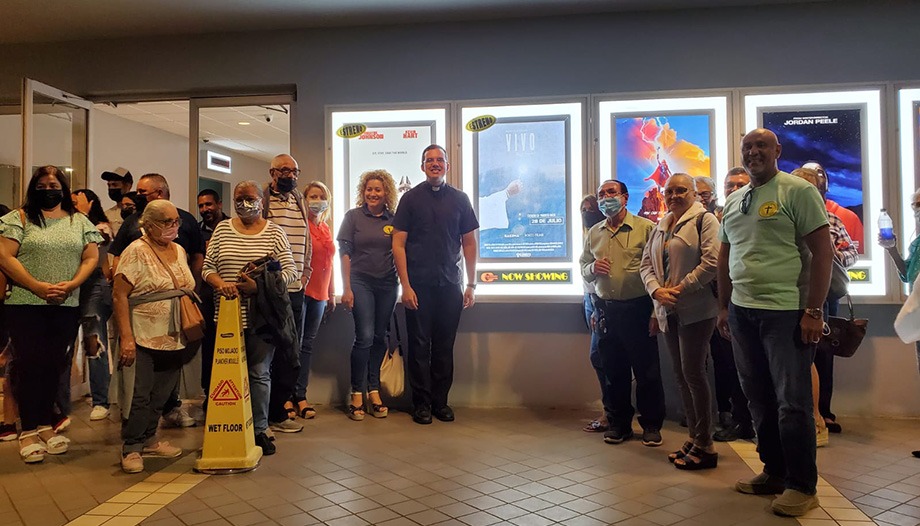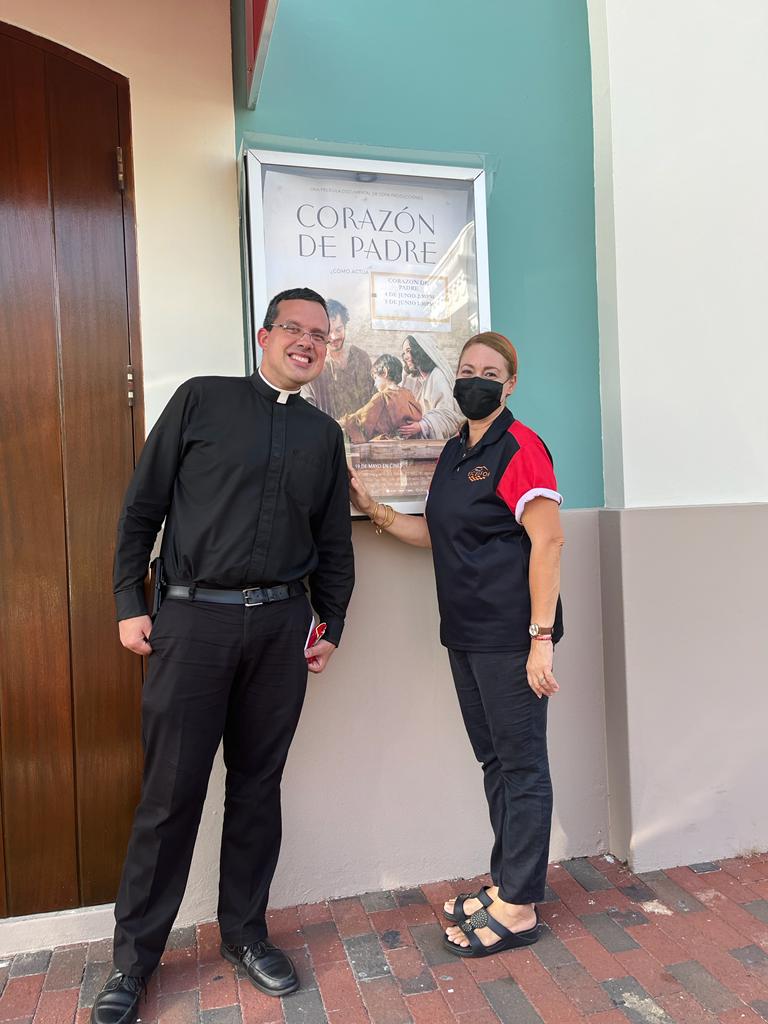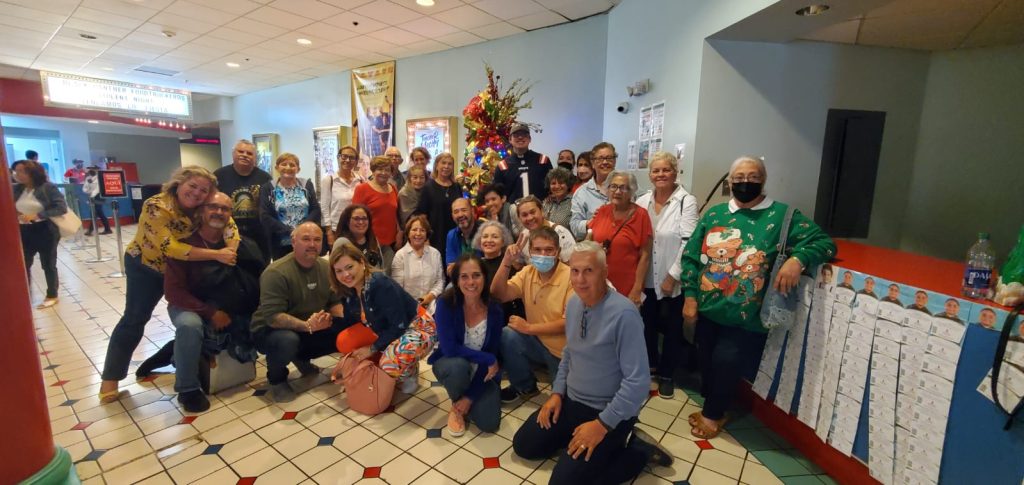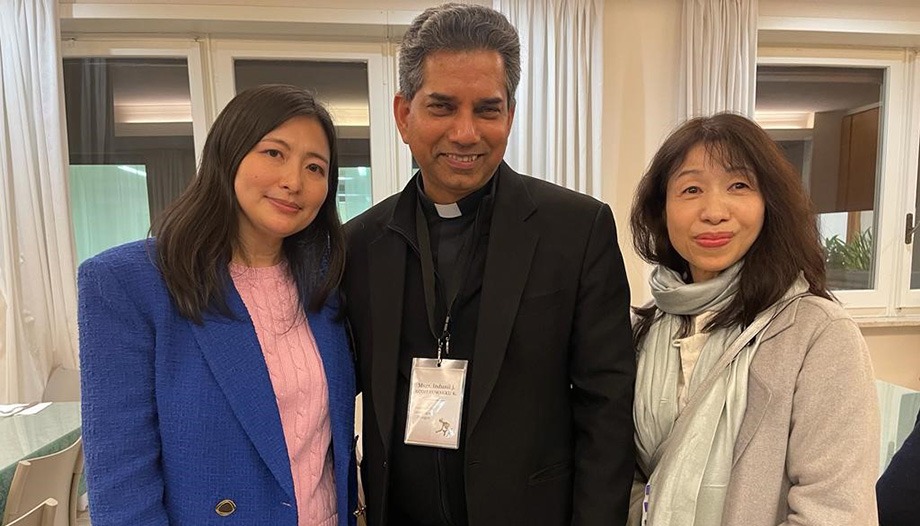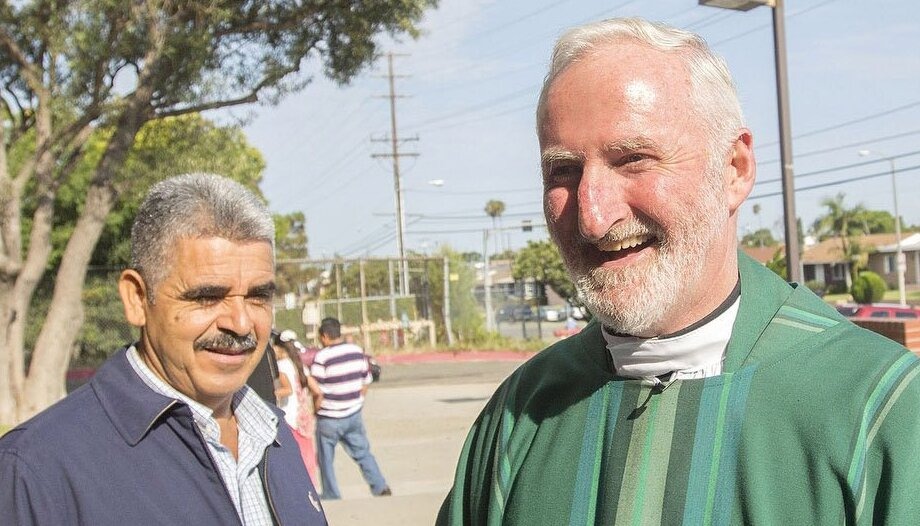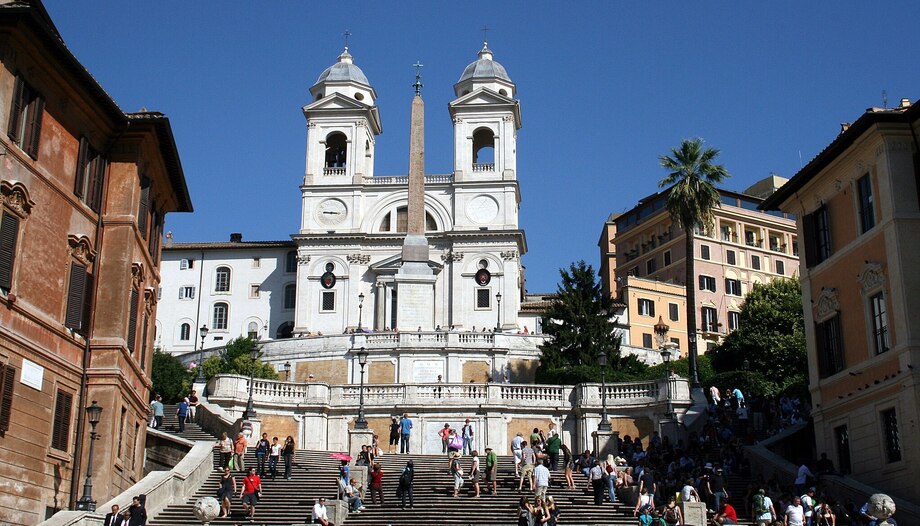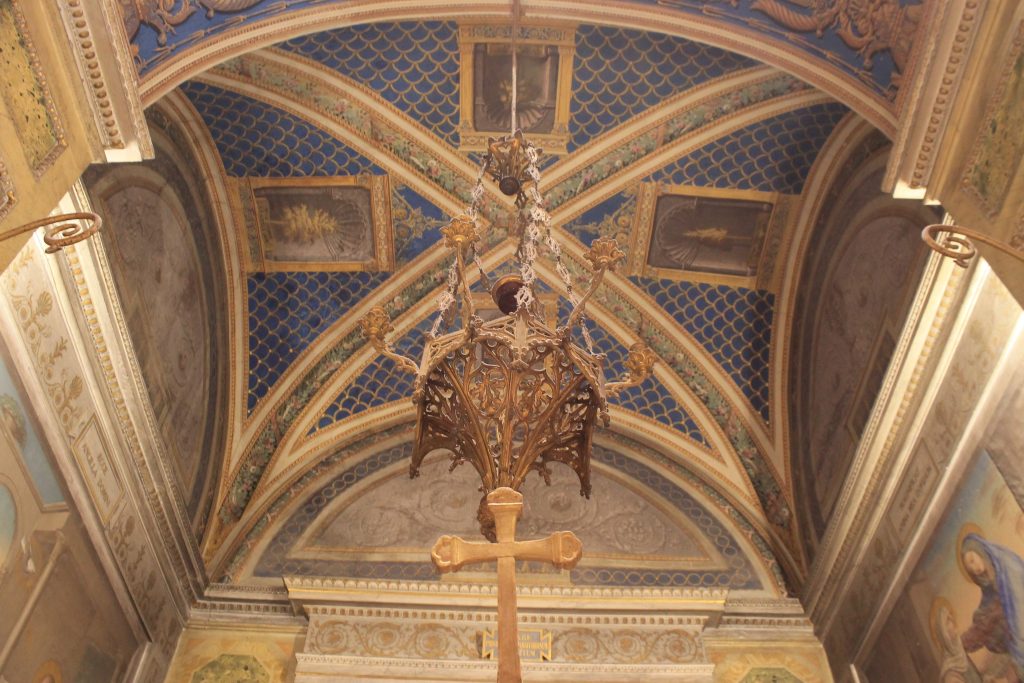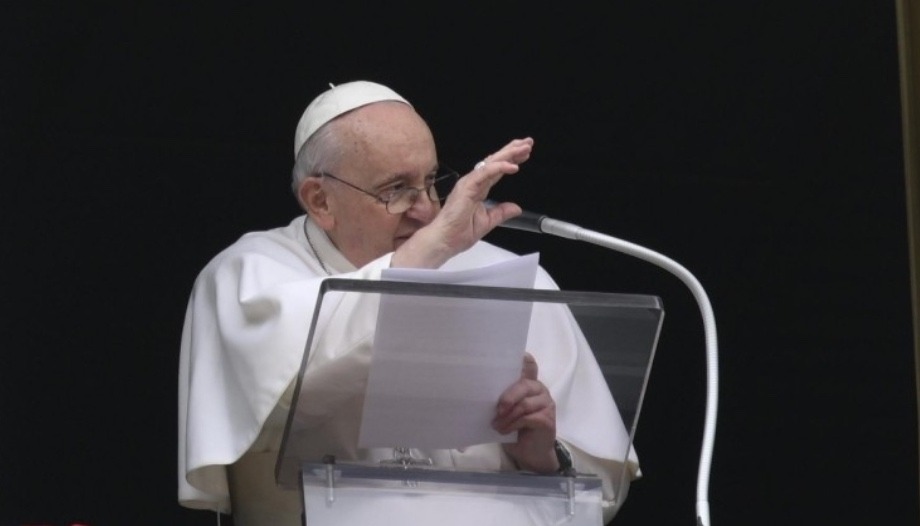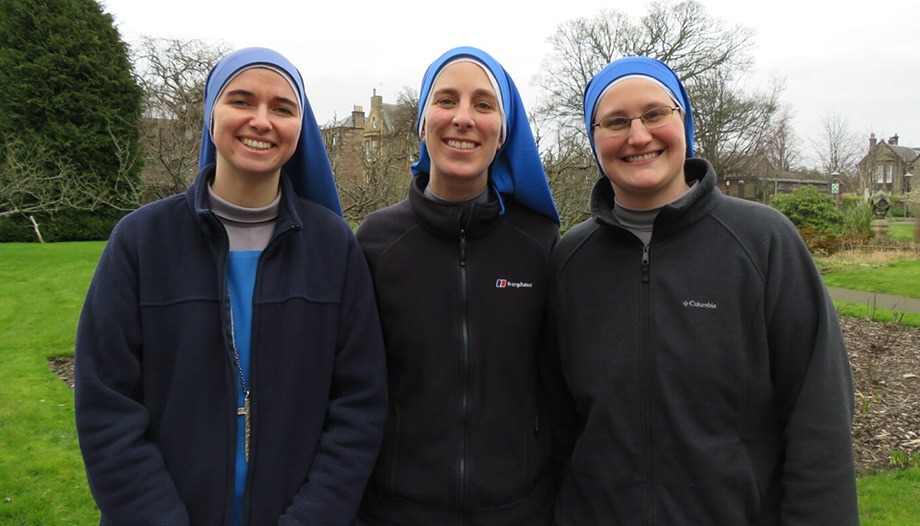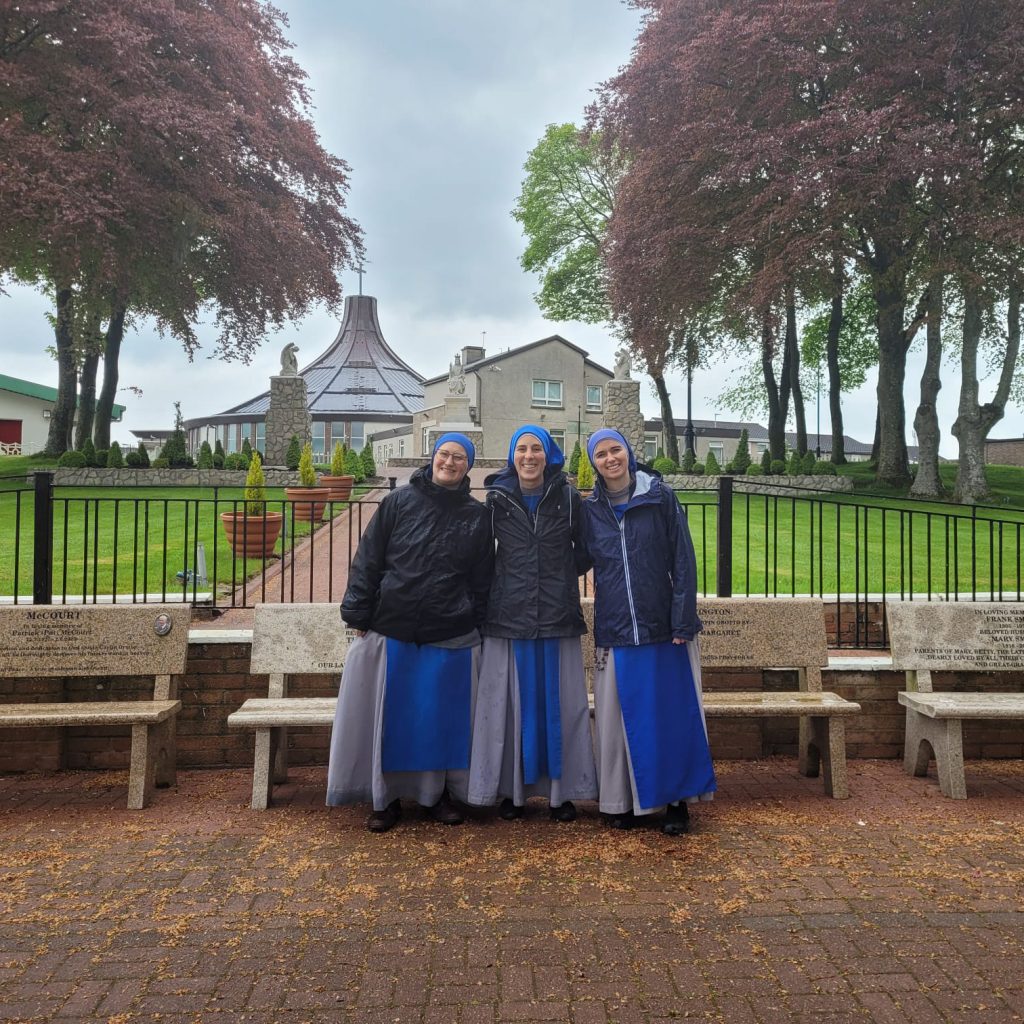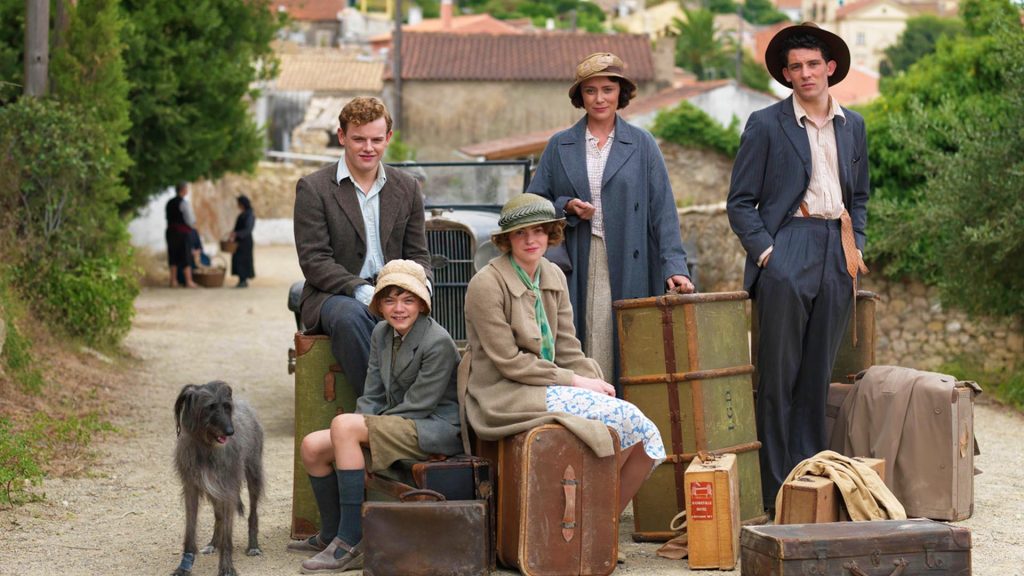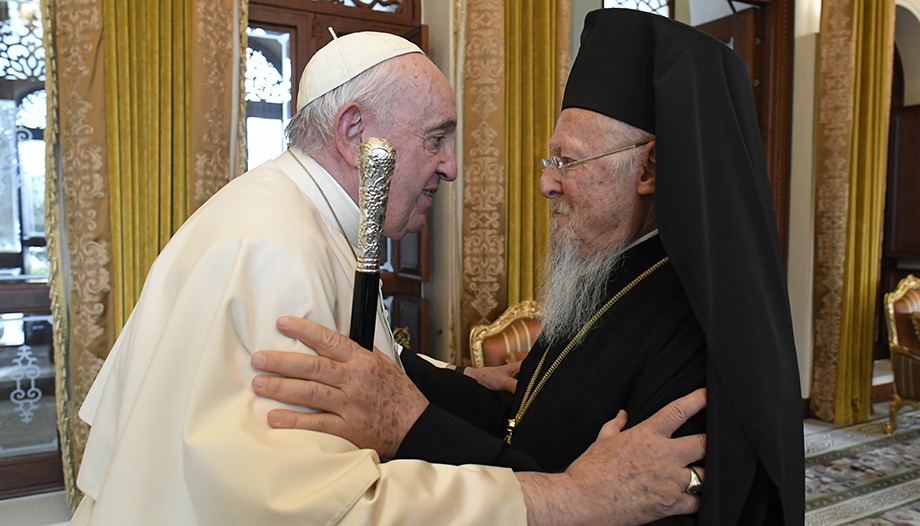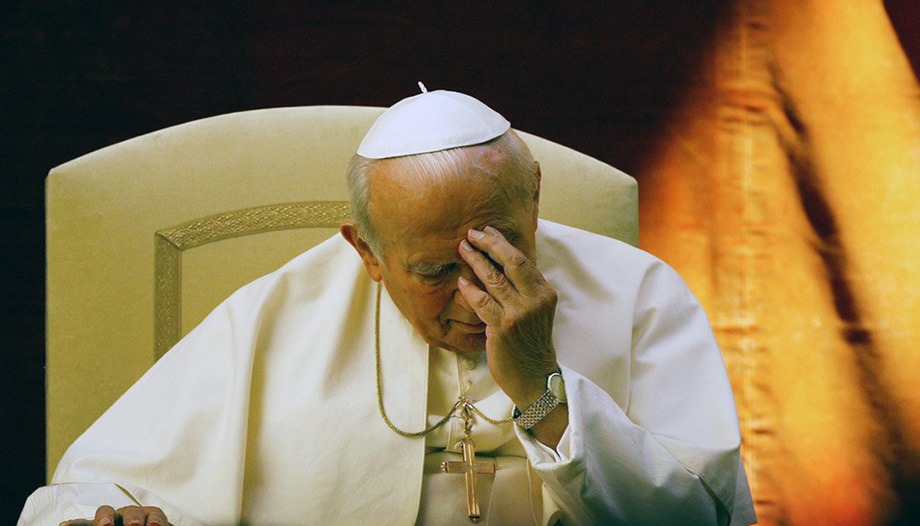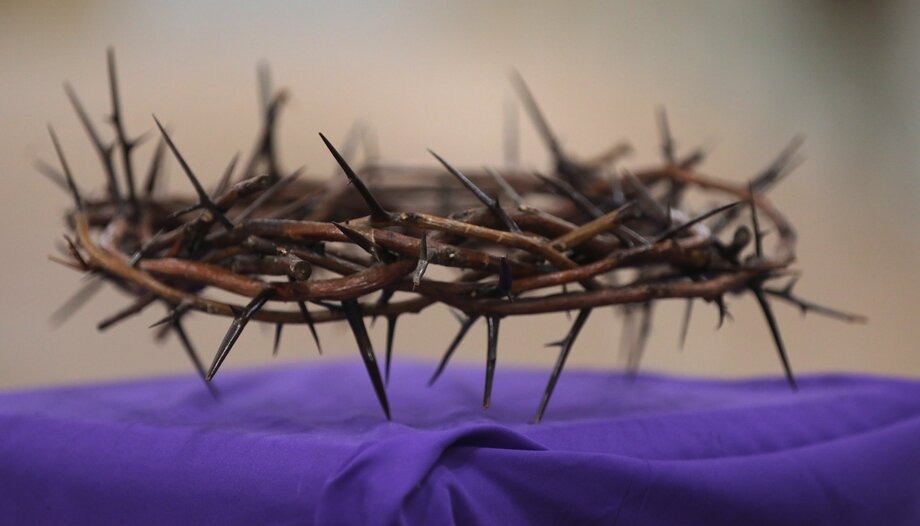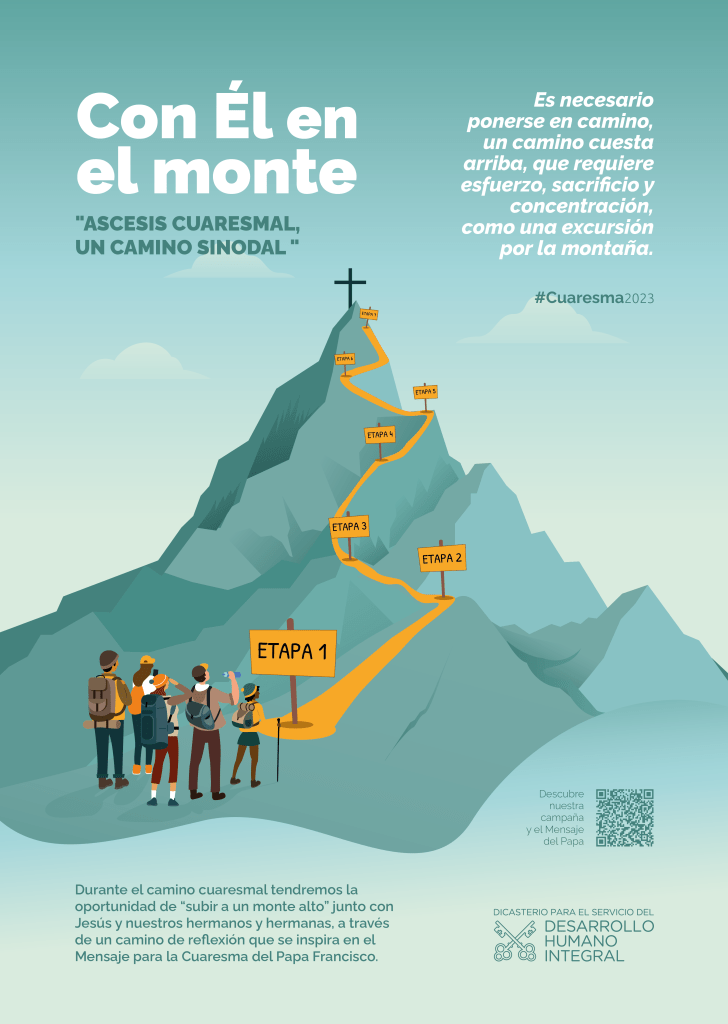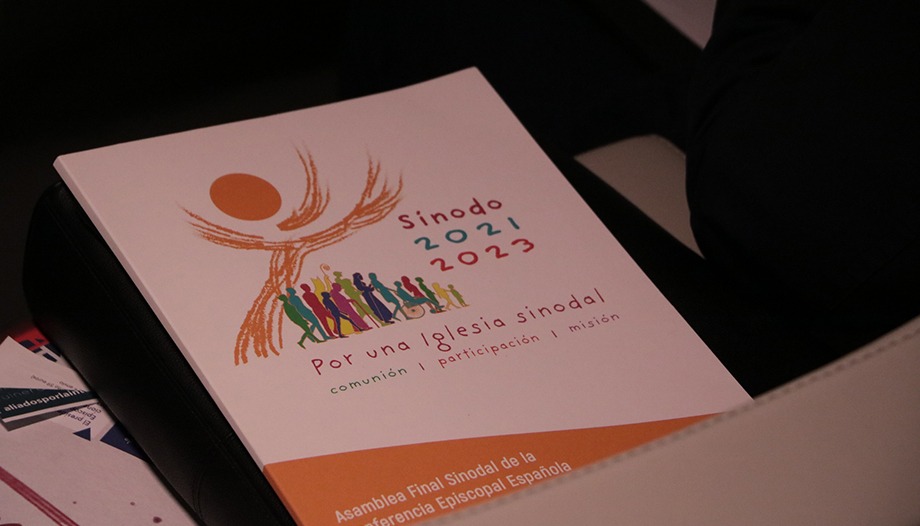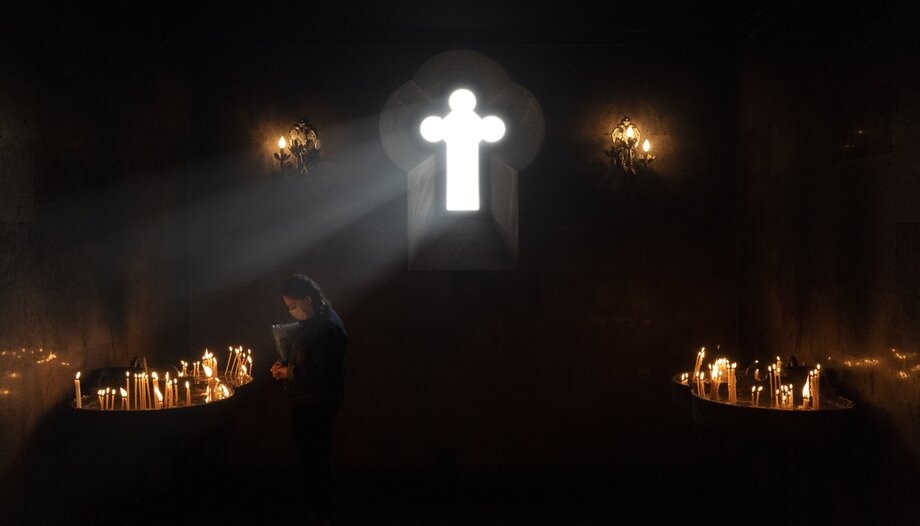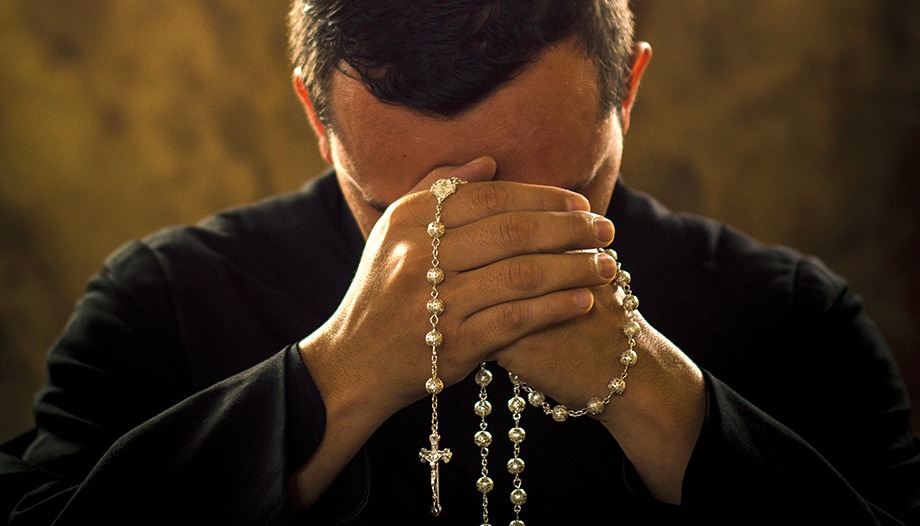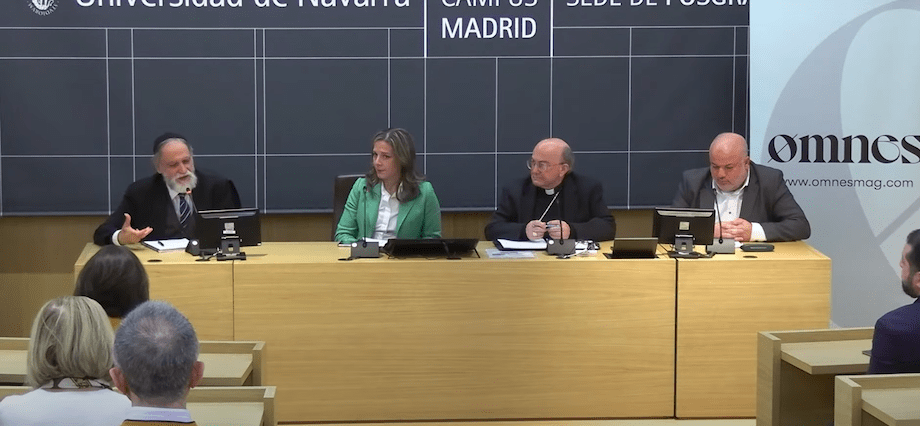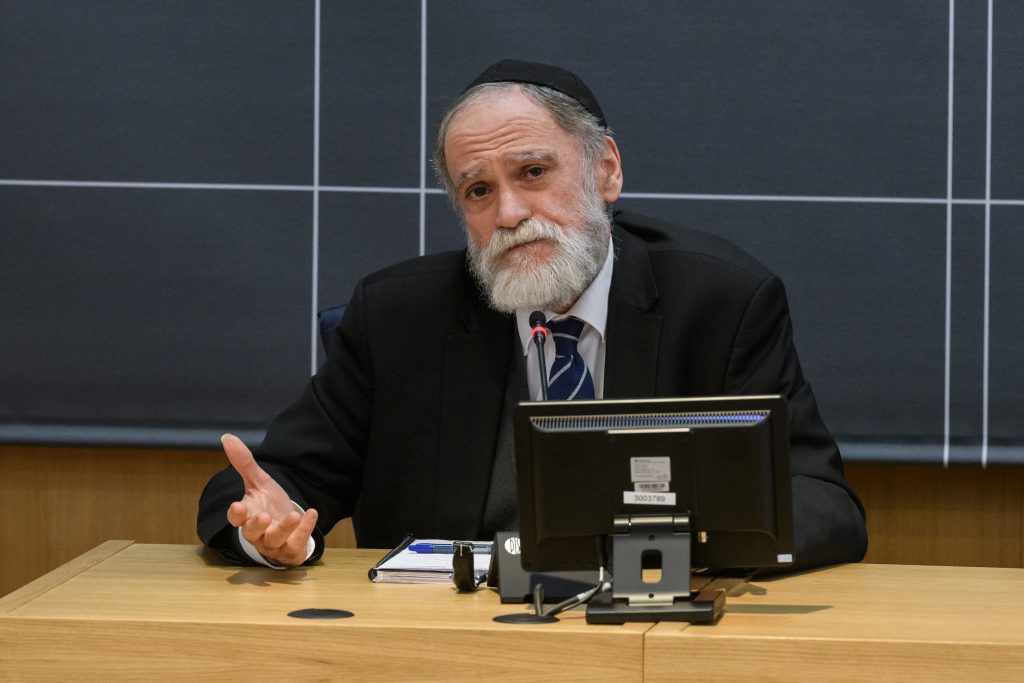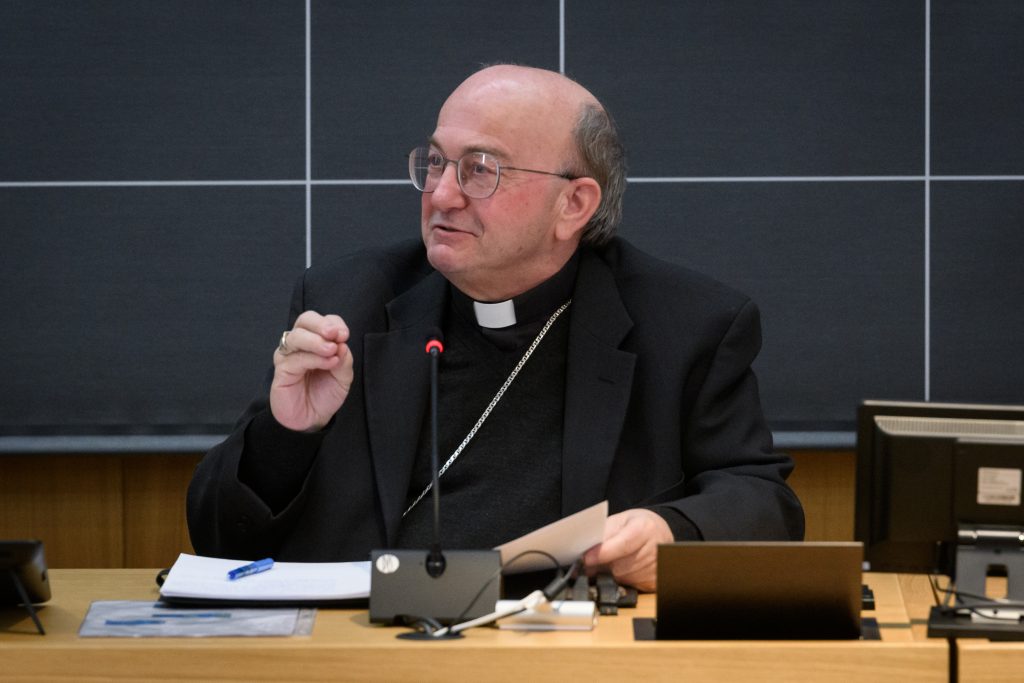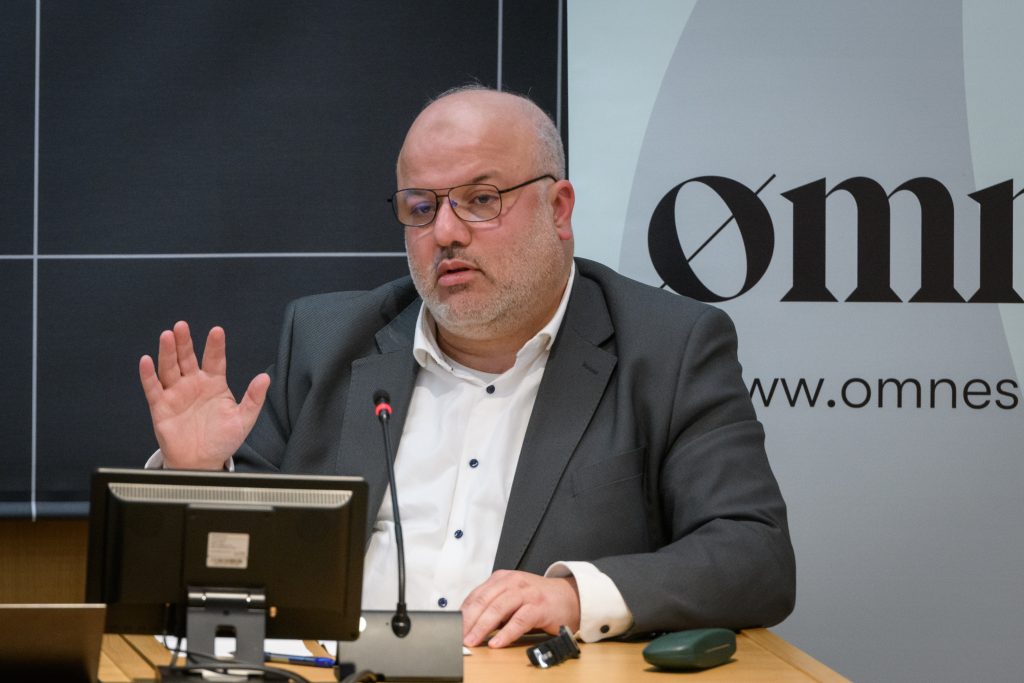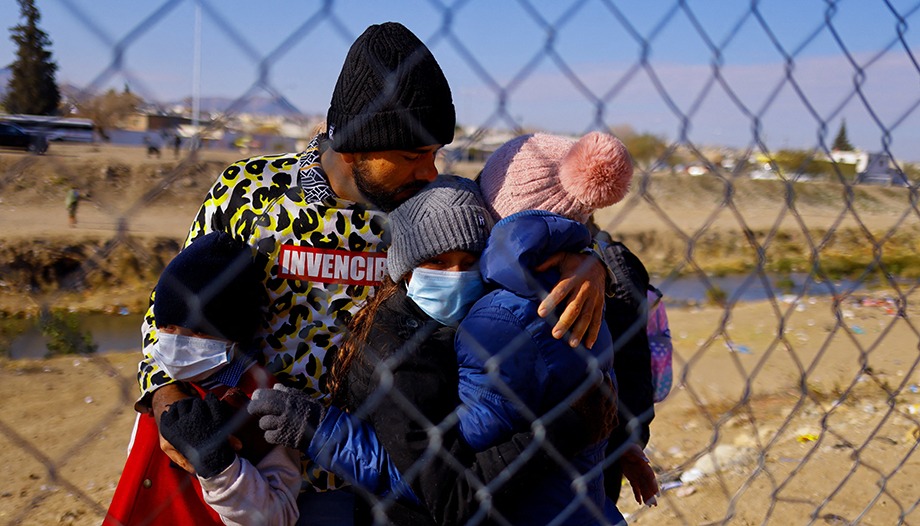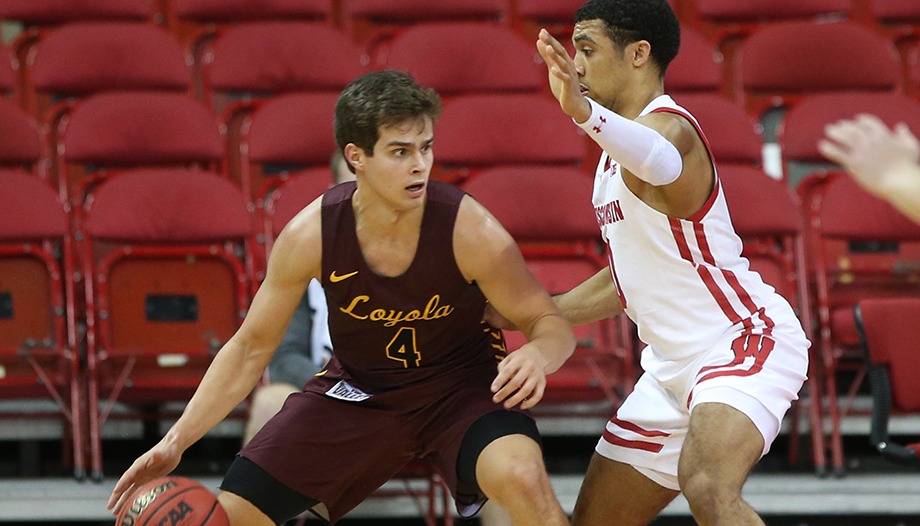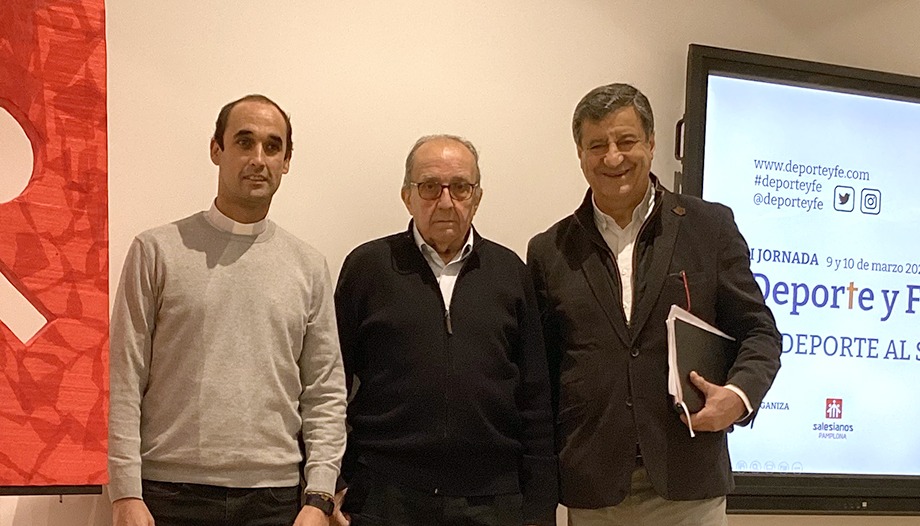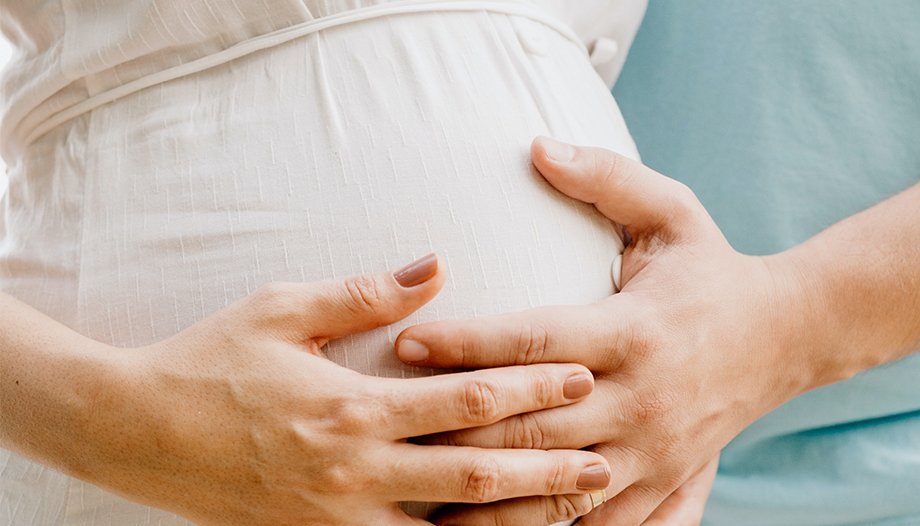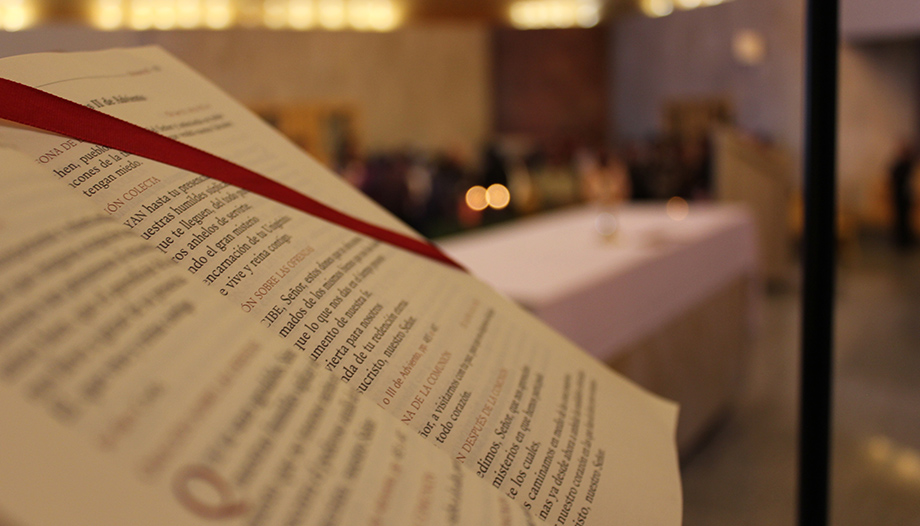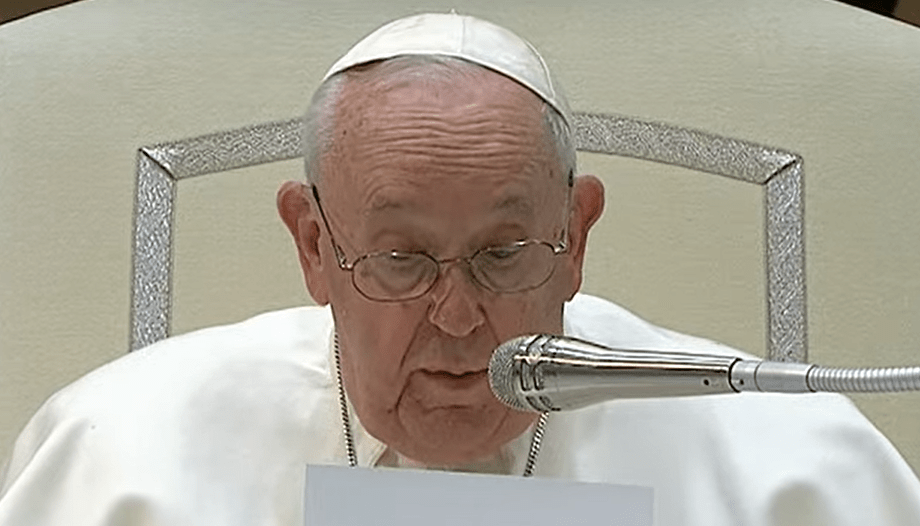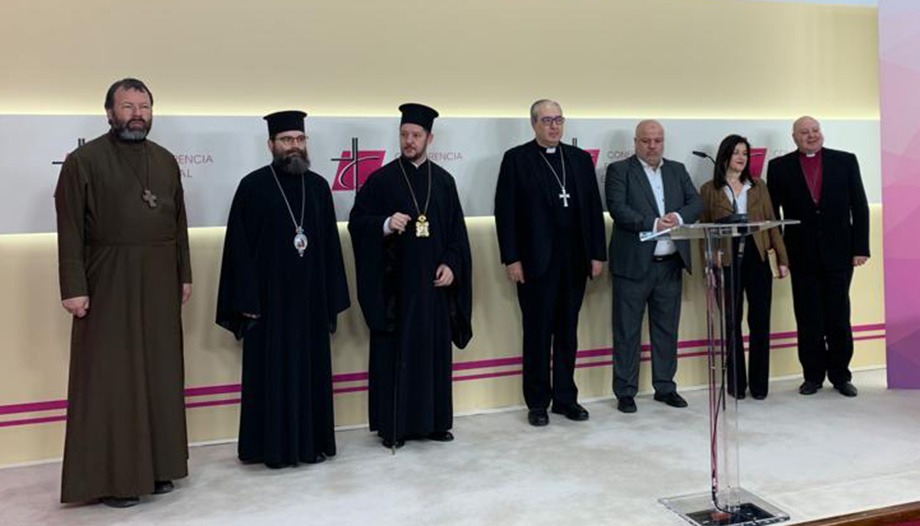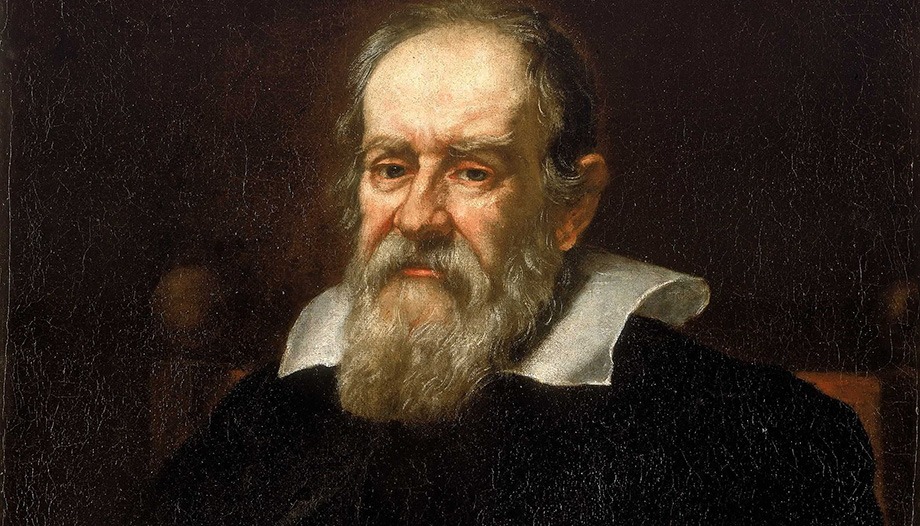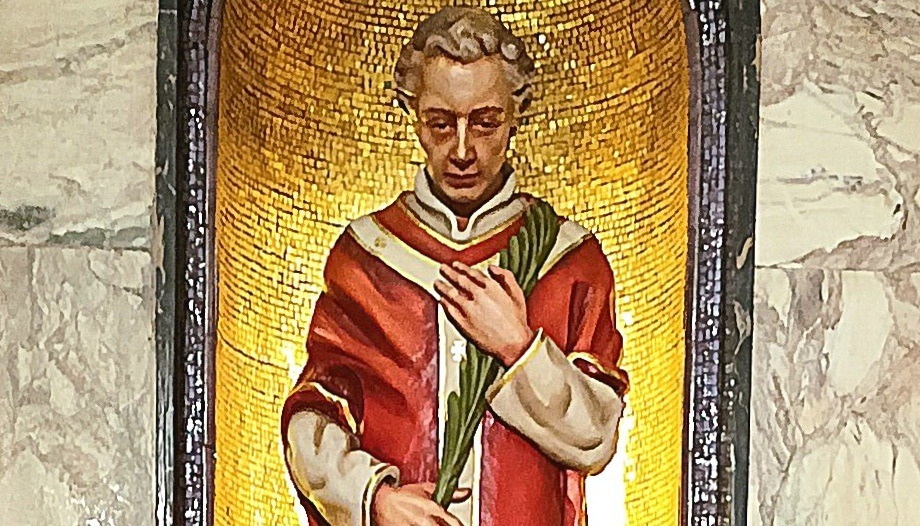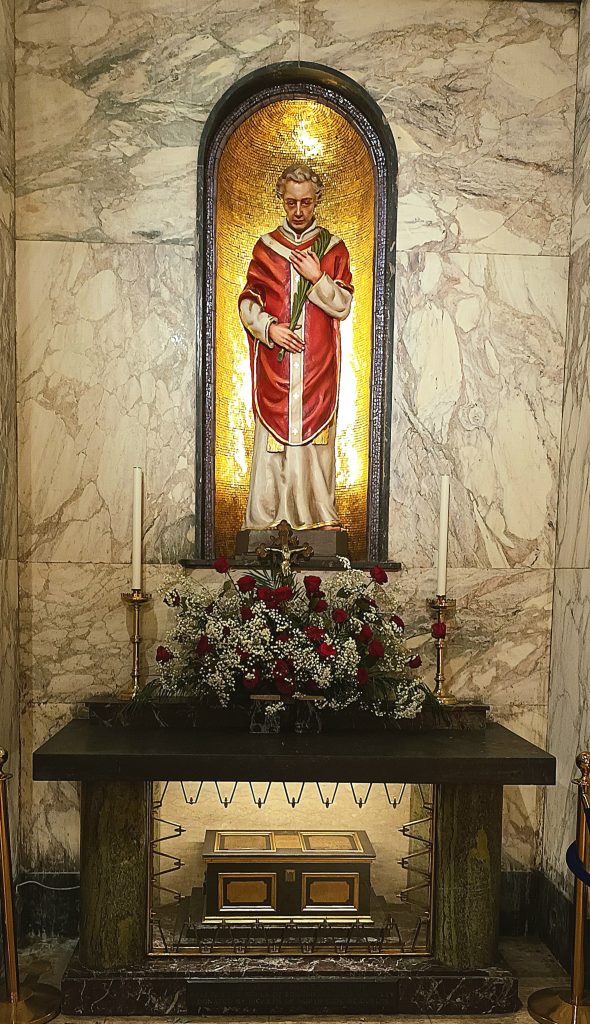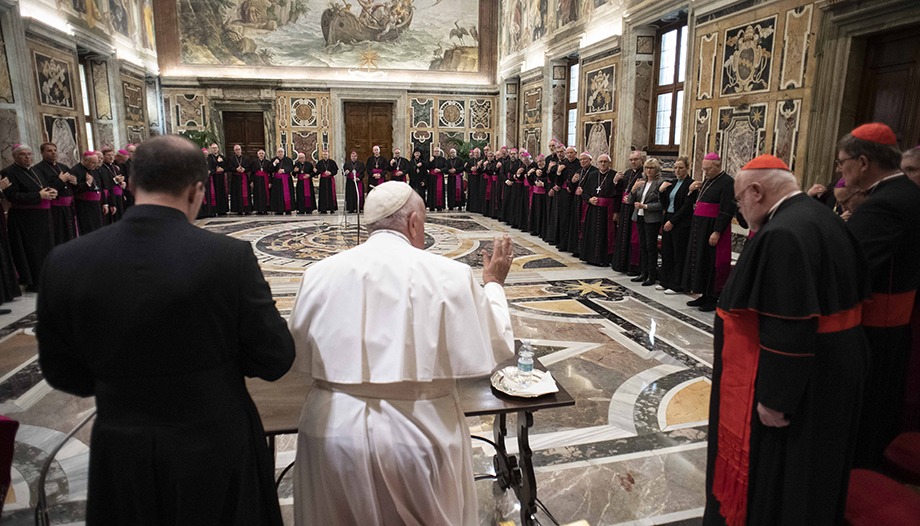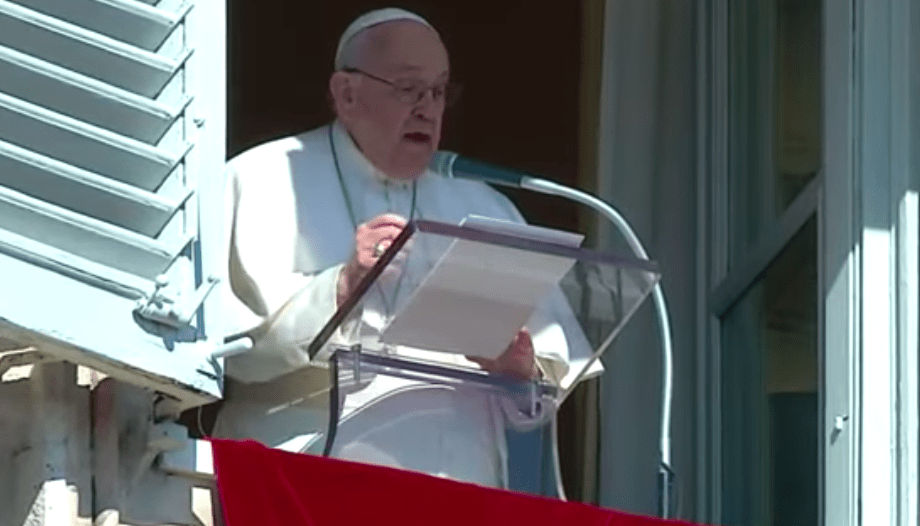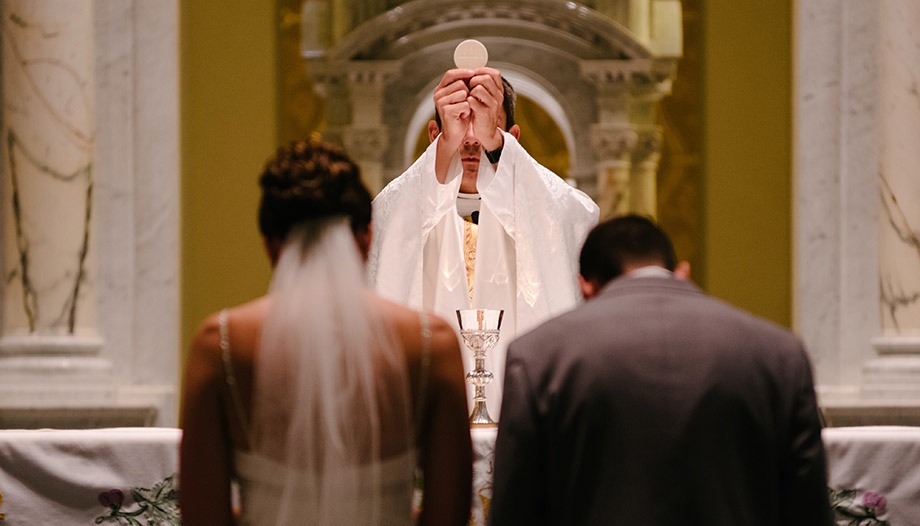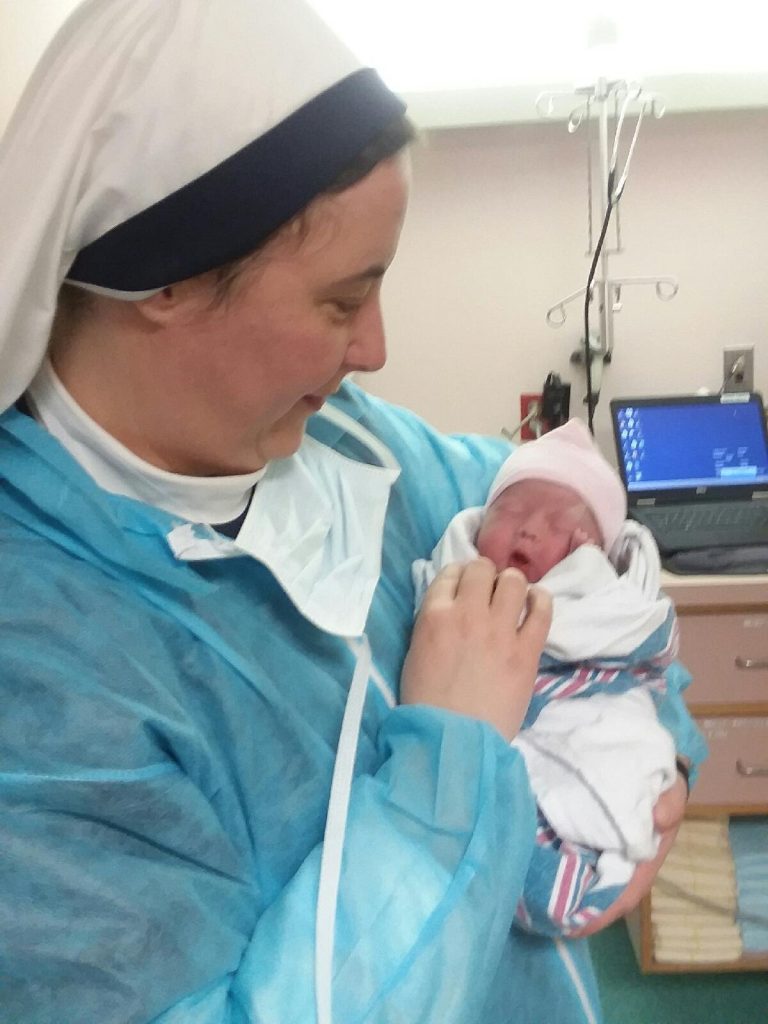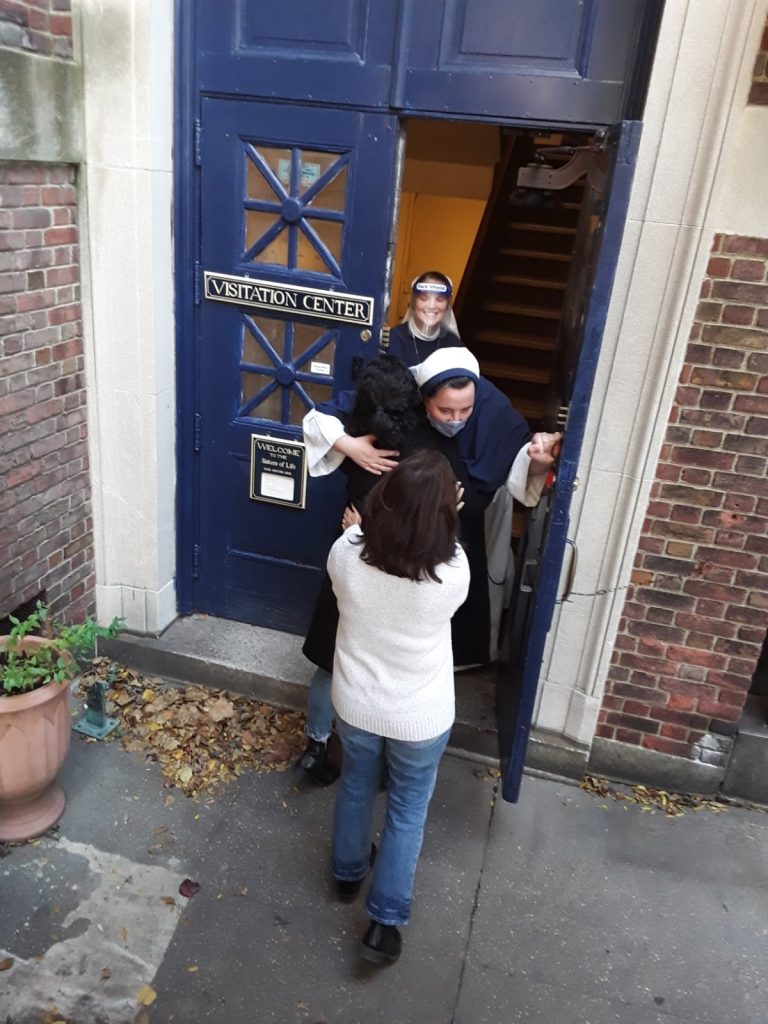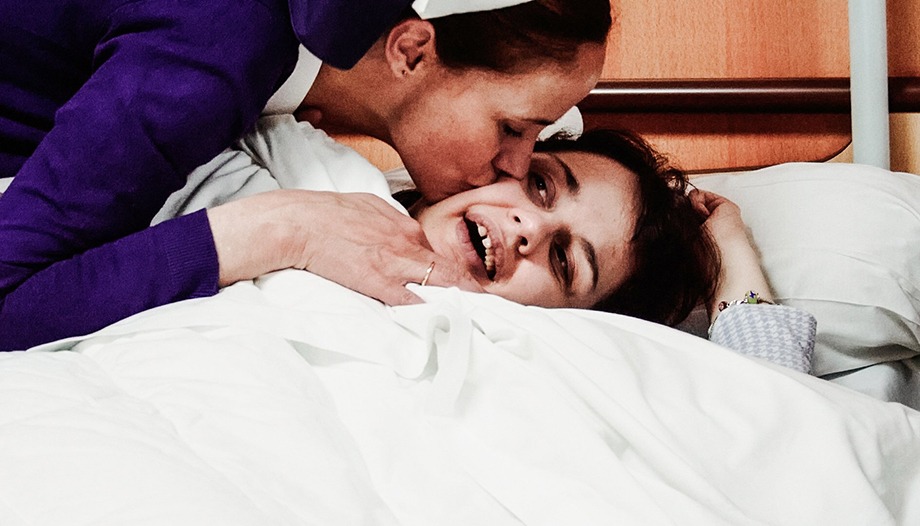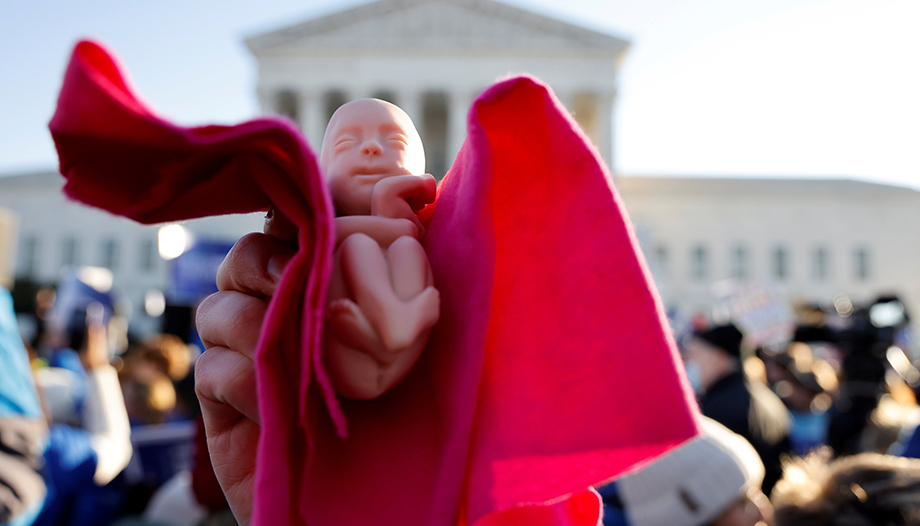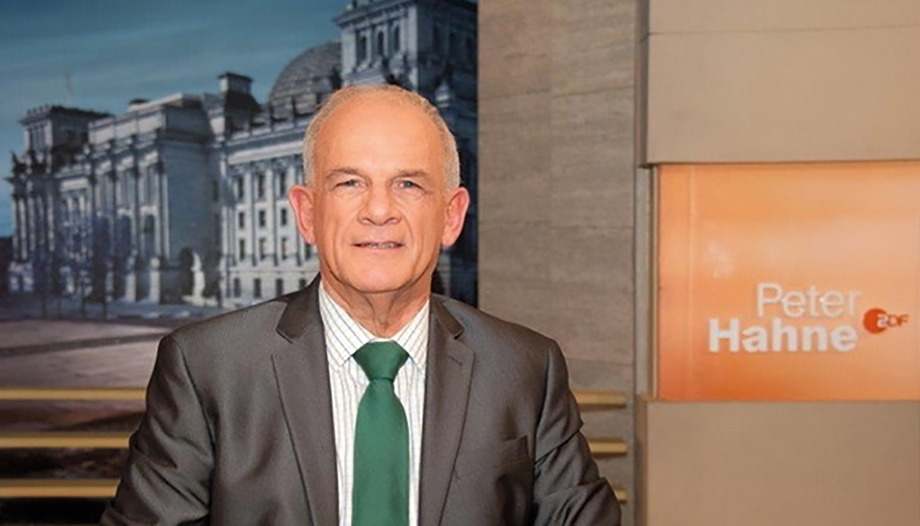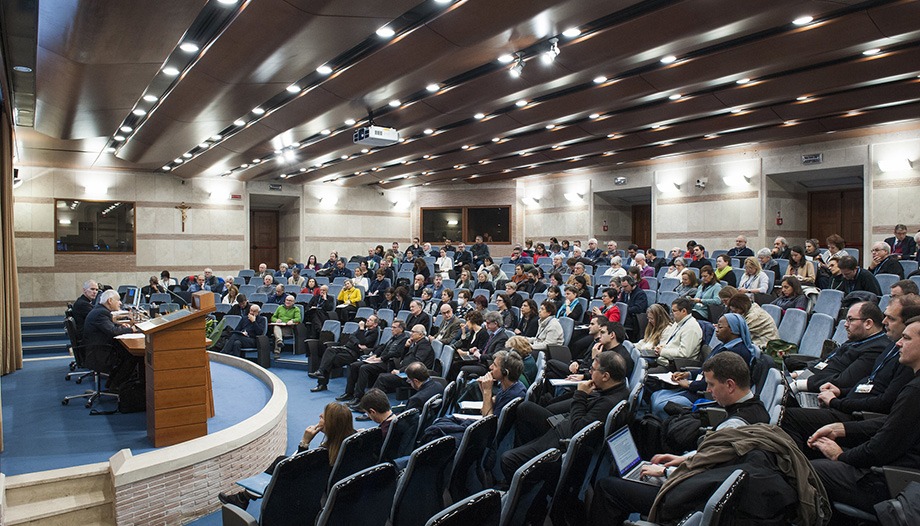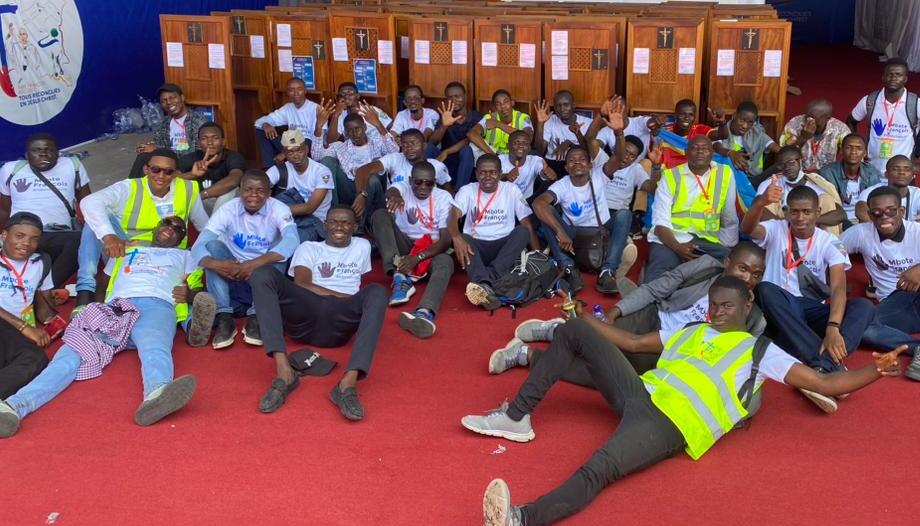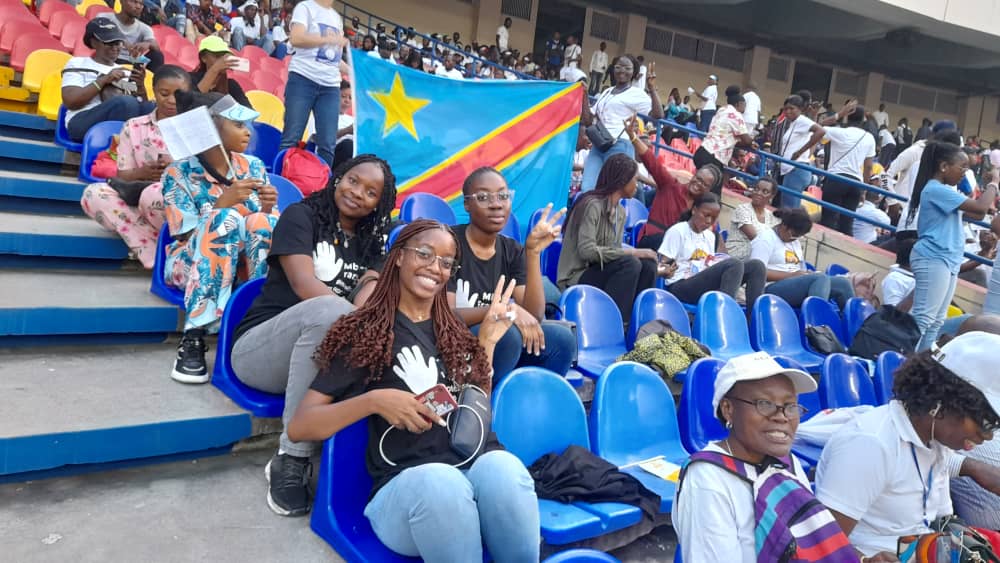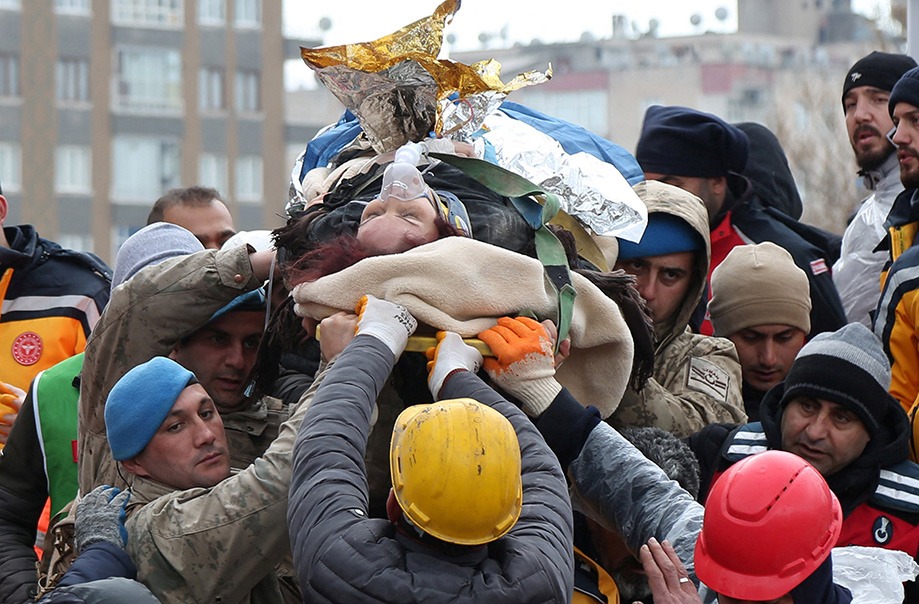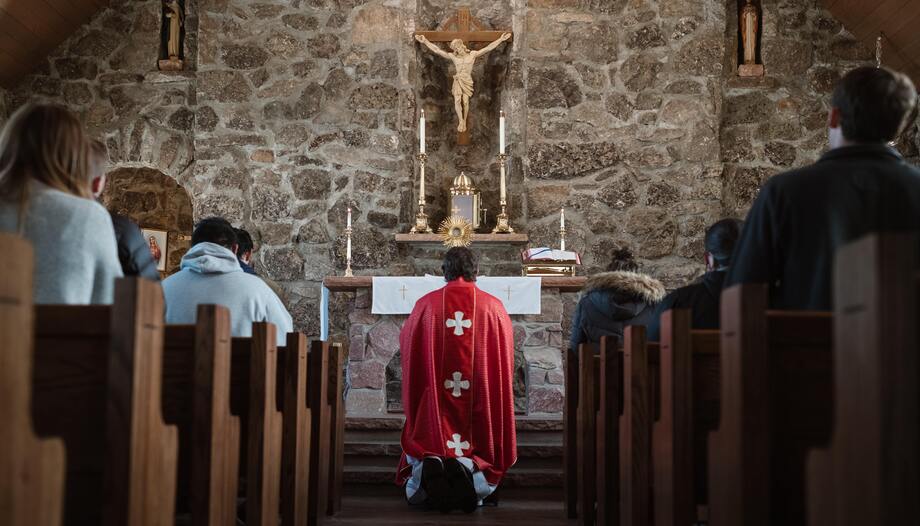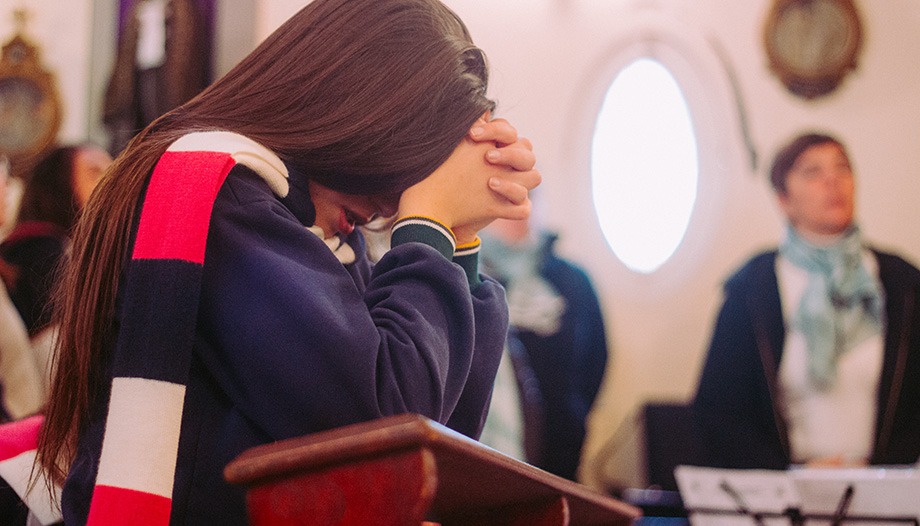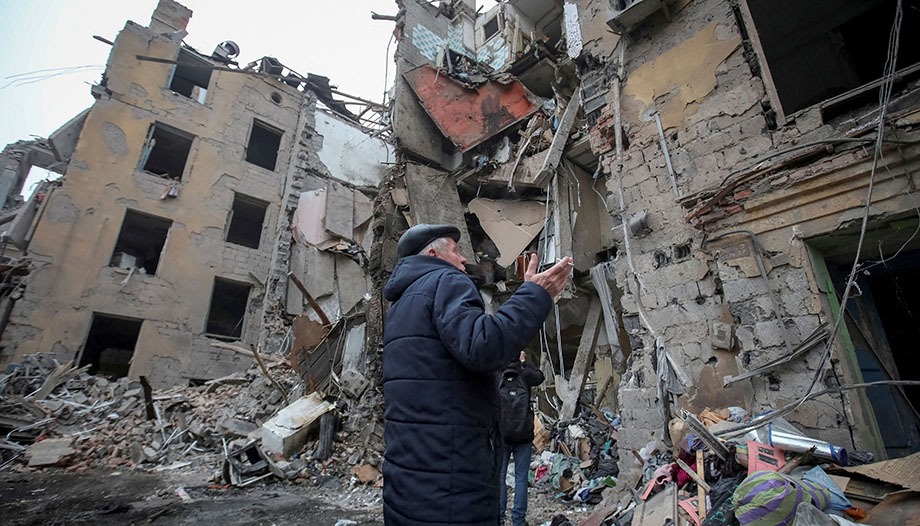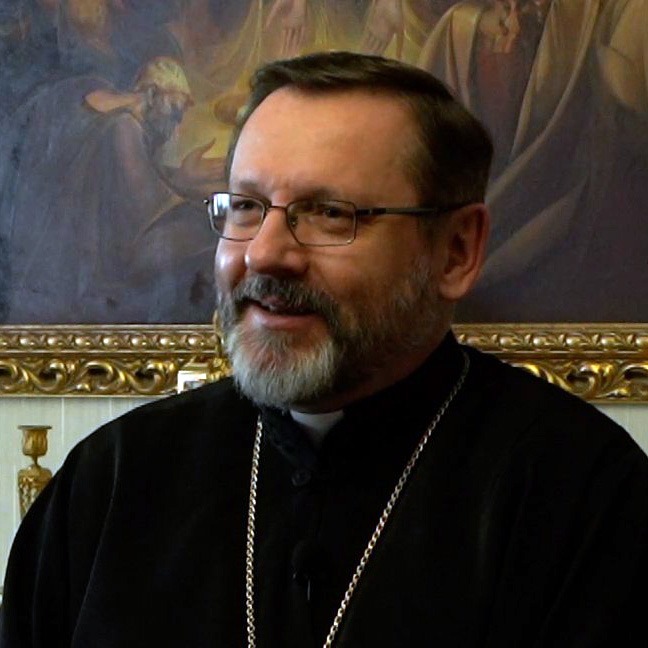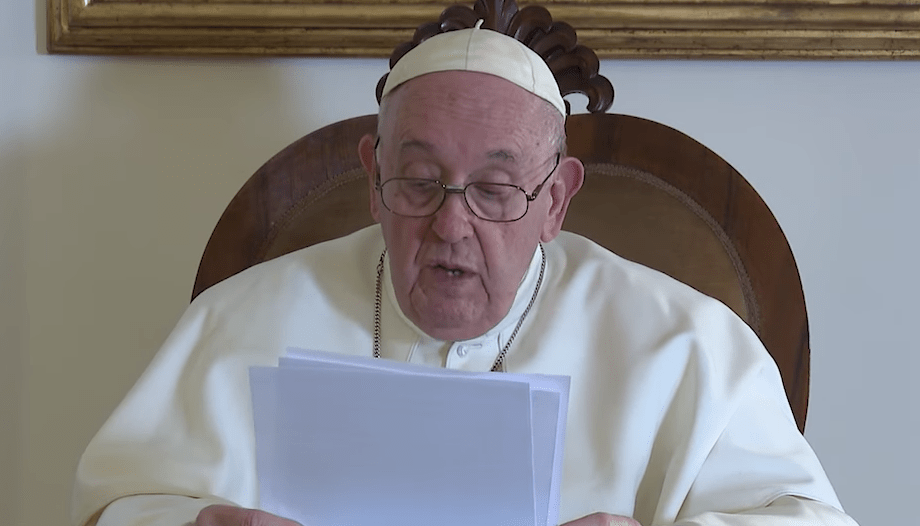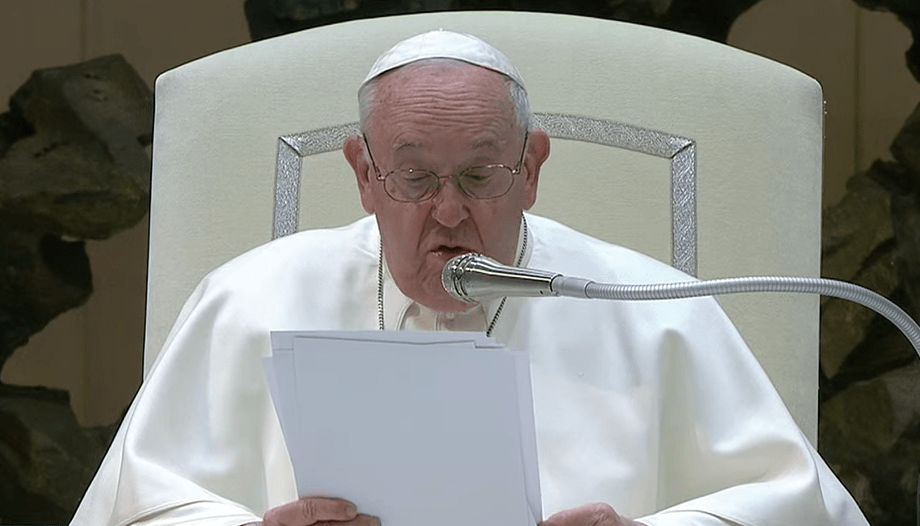Among the Holy See's statements on the German Synodal Way, the letter written by Pope Francis in his own handwriting has a special weight. "To the people of God on pilgrimage in Germany", dated June 29, 2019, when the German Bishops' Conference had announced the Synodal Way, but it had not yet formally begun its journey.
Logically, in practically all the pronouncements of the Holy See in this regard, reference is made again and again to this papal letter.
Letter of the Pope to German Catholics, June 2019: the primacy of evangelization.
The German Bishops' Conference announced the constitution of a Synodal Way at its Spring Assembly in March 2019.
Pope Francis made a statement on the matter in a letter "to the people of God on pilgrimage in Germany"..
He recalled in it what he had told the German bishops in 2015: that. "one of the first and great temptations at the ecclesial level was to believe that the solutions to present and future problems would come exclusively from purely structural, organic or bureaucratic reforms.". He described this position as "new pelagianism".
The Pope spoke of the "primacy of evangelization" as of a "discipleship path of response and conversion in love to the One who first loved us". and that "leads to recovering the joy of the Gospel, the joy of being Christians.".
The main concern should be "how to share this joy by opening ourselves and going out to meet our brothers". Expressly, Francis spoke of "recognizing the signs of the times"which, however "is not synonymous with simply adapting to the spirit of the times.". Rather, in order to resolve the issues at hand, it is decisive the sensus ecclesiae.
The People of God should not be reduced to a "illustrated group".which "do not allow yourself to see, taste and be thankful for this scattered holiness".. In this context, he spoke of holiness "from next door".
And he added: "We need prayer, penance and adoration that put us in a position to say like the publican: 'My God, have mercy on me, for I am a sinner!'; not as a prudish, puerile or pusillanimous attitude but with the courage to open the door and see what is normally veiled by superficiality, the culture of well-being and appearance.".
Rainer Woelki, Cardinal of Cologne, said that he particularly liked the reference to the "primacy of evangelization"Therefore, "we must be a missionary Church and we must not look to a 'perfect apparatus', but to Christ, the risen Lord."and that it is comforting "the naturalness and assurance with which the Holy Father uses concepts that in this country we often only express with hesitation and a certain timidity, which we have almost forgotten".Transformation, conversion, mission. The Archbishop of Cologne concluded his remarks with an appeal: "Let us take the words of the Holy Father, let us take them seriously! Let us bring the Good News to today's world.".
Although other bishops also expressed themselves in this sense, the Synodal Way -which was being constituted at the time- deduced from the Pope's letter simply a "encouragement" for their work. The Pope's statement on the "primacy of evangelization" -the central aspect in the letter- was not seriously considered.
Walter Kasper, formerly a cardinal of the Curia, called that omission "the fundamental error in the system of the Synodal Way".In Germany, it seems that it was not understood that the Pope's call for a new evangelization should not only be an additional facet of the Synodal Way, but a fundamental principle of the Synodal Way.
Instead of evangelization, the Synodal Way preferred to talk about "power and division of powers in the Church.". In general, there was the impression that the Pope's letter, marked by a very serious concern, received little attention.
Pope Francis himself would return to the subject on different occasions. For example, Bishop Heinz Josef Algermissen, bishop emeritus of Fulda, referred to an audience with the Holy Father in October 2020, saying that Francis had complained that in Germany they are treated in a way that is not in line with the Pope's wishes. "political issues" The letter of the Pope, in which he spoke of evangelization as the key question for the future of the faith, was not taken into account, but he commented that Francis had the impression that in the German dioceses it had hardly been taken into account at all. Bishop Algermissen added that the Pope had given him the task of seeing to it that the letter of June 29, 2019, was remembered.
During the visit ad limina of the German bishops of November 2022, it became clear, according to various sources, that the disregard of his letter of June 29, 2019 had "hurt and angry" to the Pope.
In response, the president of the German Bishops' Conference, Bishop Bätzing, promised that bishops would "they're going to dig deeper into the charter.".
Other words of Francis: a synod is not a parliament
Also in another respect, the Synodal Way turned a deaf ear to the statements of Pope Francis: in September 2019, when the preparatory work of the German Synodal Way was beginning, Francis said in an audience for the Synod of the Greek Catholic Church of Ukraine: "A synod is not a parliament."This was not to be misinterpreted as a survey of opinions followed by negotiation of compromises. "You have to deal with things, debate them, as usual; but it is not a parliament. A synod is not a vote as in politics: I give you this, you give me that.".
In a general audience in November 2020, the Pope repeated this idea: synodal processes should not be perceived with the categories of political parties or companies. "Sometimes I am saddened when I see a community that has good will but is going in the wrong direction because it thinks it is helping the Church with meetings, as if it were a political party.". However, the Synodal Way continued to persist in achieving majorities and in voting.
Letter of the Prefect of the Congregation for Bishops September 2019: care for the universal Church.
In September 2019, the prefect of the Congregation for Bishops, Cardinal Marc Ouellet, sent a letter to the then president of the German Bishops' Conference, Cardinal Reinhard Marx, in which he stated that the. "binding synodal process" is not foreseen, so "not admissible under canon law"..
Cardinal Ouellet pointed out that plans for the Synodal Way would have to be in line with the guidelines set forth by Pope Francis in his June 2019 letter. According to Cardinal Ouellet, a German synod cannot change the universally valid teaching of the Church.
The letter was accompanied by a four-page opinion of the Pontifical Council for Legislative Texts, which stated: "It is clear that these questions concern not only the Church in Germany, but the universal Church, and - with some exceptions - cannot be the subject of deliberations or decisions of a particular Church without violating what the Holy Father expresses in his letter."
The German Bishops' Conference responded that Cardinal Ouellet's letter referred to an earlier draft of the Statutes for the Synodal Way, which had since been revised. In addition: "We hope that the results of an opinion formation in our country will also be useful for the universal Church and for other Episcopal Conferences in individual cases. In any case, it is not understandable why the debate on questions on which the Magisterium has made determinations, as your letter suggests, should be eliminated."
A visit from Cardinal Marx to Cardinal Ouellet was announced. "to clear up misunderstandings". The German Bishops' Conference approved the revised statutes in November 2019, and the Synodal Path began in early December 2019 with the four preparatory forums.
July 2022 Declaration: no new forms of government can be created, nor can doctrine or morals be changed.
After they had expressed their concern about the Synodal Way in letters to the German Bishops' Conference, cardinals and bishops, and even bishops' conferences of other countries - from the Ukrainian Bishops' Commission for Marriage and the Family, to Bishop Czeslaw Kozon of Copenhagen and the Nordic Bishops' Conference; from the president of the Polish Bishops' Conference, Archbishop Stanislaw Gadecki, to 74 bishops from the United States, Canada, Africa and Australia - and cardinals of the Curia such as Walter Kasper, Robert Sarah and Paul Josef Cordes would have spoken out, the Vatican published in July 2022 a brief statement signed by the "Holy See" The Synodal Way - that is, by the supreme authority of the Church - in which it forbade the Synodal Way to make any decision that would "compel the bishops and the faithful to adopt new forms of government and new doctrinal and moral orientations.". The document stated: "It would not be admissible to introduce in the dioceses, prior to an agreement reached at the level of the universal Church, new official structures or doctrines that would constitute a breach of ecclesial communion and a threat to the unity of the Church.". The Declaration quoted the Pope's June 2019 letter, in which the Holy Father speaks of the need to. "to keep always alive and effective communion with the whole body of the Church.".
Ad limina visit, November 2022
The Vatican's clearest criticism of the Synodal Way to date was expressed by the Prefects of the Dicasteries for the Doctrine of the Faith, Cardinal Luis Ladaria, and of the Congregation for Bishops, Cardinal Marc Ouellet, at the so-called Interdicasterial Meeting with the German bishops, during his ad limina visit in November 2022. The meeting was chaired by Cardinal Secretary of State Pietro Parolin.
Five serious concerns of Cardinal Ladaria, Prefect for the Doctrine of the Faith
In his presentation, Cardinal Ladaria started from the Pope's letter of June 29, 2019: a new indication of the importance that, in relation to the German Synodal Way, is given to the Holy Father's writing in the Vatican and not only by the Pope. As Prefect of the Dicastery for the Doctrine of the Faith, he expressed five concerns, "that emerge from a careful reading of the texts treated so far in your Synodal Journey"..
First of all, the cardinal referred to the "literary genre of texts".. In them, he said, there are statements about positions in the people of God, references to scientific and sociological knowledge, results of exegesis that are still under discussion, "general protocols on the possible public recognition of the Church's doctrine and, finally, references to anonymous theologians with no possibility of identification.". He therefore advocates that the Synodal Path should produce one final document rather than a multitude of texts.
Secondly, Cardinal Ladaria mentioned the "connection between the structure of the Church and the phenomenon of clergy abuse of minors and other abuse phenomena.". Of course, further abuses must be prevented. However, this does not mean "to reduce the mystery of the Church to a mere institution of power or to consider the Church from the outset as a structurally abusive organization".
Ladaria's third observation is related to the "vision of human sexuality according to the doctrine of the Church."The cardinal cited in particular the 1992 Catechism of the Catholic Church as an authority. From the texts of the Synodal Way, he said, one can get the impression "that there is almost nothing to save in this area of Church doctrine. Everything has to be changed".. The cardinal poses a question: what effect does this have on the faithful? "Who listen to the voice of the Church and strive to follow its guidelines for their lives? Do they think they have done everything wrong so far?". And ask for "more confidence in the vision" that "the Magisterium has developed in recent decades on sexuality"..
Fourth, the Prefect of the Dicastery for the Doctrine of the Faith discusses "the role of women in the Church and, in particular, the question of women's access to ordination to the priesthood.". Cardinal Ladaria reproaches that the texts of the Synodal Way reduce everything to the affirmation that the Church does not respect the dignity of women because they do not have access to priestly ordination. Ladaria: "It is a matter of accepting the truth that 'the Church has no authority whatsoever to ordain women priests' (St. John Paul II, Ordinatio sacerdotalis).". However, it recognizes "the recent deliberations of the Synodal Path". The company is now seeking clarification on the issue from Pope Francis. This, "it would undoubtedly tone down the very controversial tones of the text on women's access to ordination to the priesthood, and for that we can only be grateful.".
Finally, Cardinal Ladaria expresses his objections with regard to "the exercise of the magisterium of the Church and, in particular, the exercise of the episcopal magisterium." according to the Synodal Way and criticizes the fact that in its texts it has been almost completely forgotten "the indication of the conciliar Constitution Dei Verbum and, in particular, the question of the transmission of the faith through apostolic succession.". That is why he denies equating the mission of the bishops with that of the bishops. "other offices in the Church, such as those of theologians and experts in other sciences.".
Cardinal Ouellet, Prefect of Bishops: no changes in doctrine are possible
At the same meeting, the Prefect of the Dicastery for Bishops, Cardinal Marc Ouellet, also referred to Pope Francis' June 2019 letter.the fact that the letter "has not really been assumed as a guide for the synodal method". has had important consequences. "After this initial distancing from the pontifical magisterium on the methodological level, growing tensions with the official magisterium on the substantive level emerged in the course of the work."which gave rise to proposals "openly contrary to the doctrine affirmed by all the popes since the Second Vatican Ecumenical Council.". This is equivalent to a "change of the Church" and not only to "pastoral innovations in the moral or dogmatic field.".
Cardinal Ouellet is struck by the fact that "the agenda of a limited group of theologians several decades ago has suddenly become a proposal of the majority of the German episcopate.". In this context, he mentions the abolition of compulsory celibacy, the ordination of viri probatiaccess of women to ordination, the access of women to ordination, a "moral re-evaluation of homosexuality". and reflections on sexuality inspired by gender theory, as well as the "structural and functional limitation of hierarchical power"..
However, the Prefect also speaks of the "possibility of combining perspectives through a methodological change that could help to improve the theses of the German Synodal Way.". For this purpose, it recommends "listen more deeply to the approach of Pope Francis and the World Synod of Bishops.".
Final communiqué: reservations on method, content and proposals
In a "Joint Communiqué," the Holy See and the German bishops summarized the most important points of the Interdicasterial Dialogue. The document affirmed that Cardinals Ladaria and Ouellet "clearly and openly expressed the concerns and reservations that exist about the method, content and proposals of the Synodal Pathway.".
Cardinal Secretary of State Parolin pointed out that "can't be left out" the exchange of ideas of the Inter-Dicasterial Dialogue. In addition, mention was made of the "numerous contributions" in which "the central importance of evangelization and mission as the ultimate goals of the ongoing processes was noted."but also "the awareness that some issues are non-negotiable.".
However, the question that arises after the ad limina visit is how the bishops will introduce these proposals into the Synodal Way. The Central Committee of German Catholics has already announced that it will maintain its agenda for the Fifth Plenary Assembly in March.
A "collateral issue": blessing for same-sex couples
Among the demands of the Synodal Way is the blessing of same-sex couples. In March of 2021, the Congregation for the Doctrine of the Faith responded to a dubium that had been presented to them. In the document signed by the Prefect, Cardinal Luis Ladaria, and the Secretary of the Congregation for the Doctrine of the Faith, Archbishop Giacomo Morandi, it was stated that the Church has no authority to bless same-sex unions. With the nature of the blessing granted by the Church, only the following is compatible "that which is ordained to receive and express grace, in the service of God's plans inscribed in creation and fully revealed by Christ our Lord.".
In Germany, however, they were organized on May 10, 2009. "blessing services for people who love each other."The president of the German Bishops' Conference, Bishop Georg Bätzing, declared, however, that he did not consider such public actions to be public. However, the president of the German Bishops' Conference, Bishop Georg Bätzing, declared that he did not consider such actions public. "a useful signal and a way forward."which were not suitable as "instrument for political-ecclesiastical demonstrations or protest actions.".




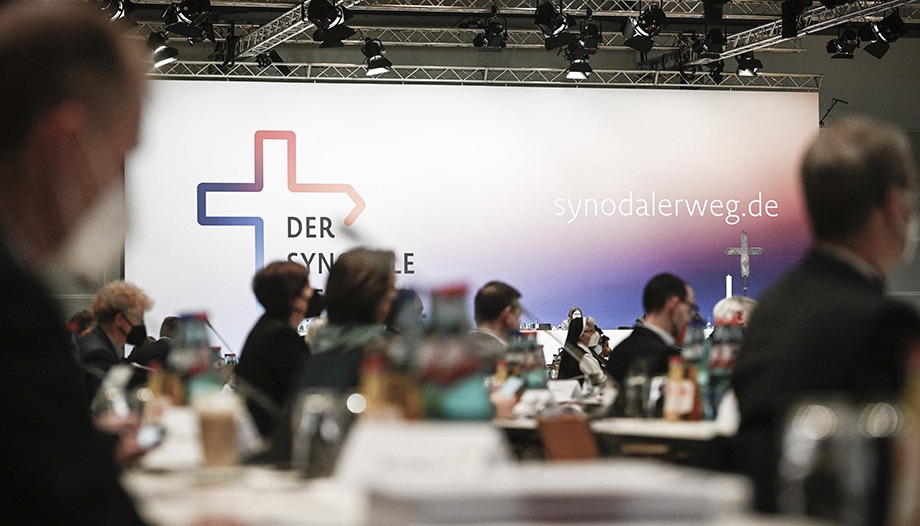





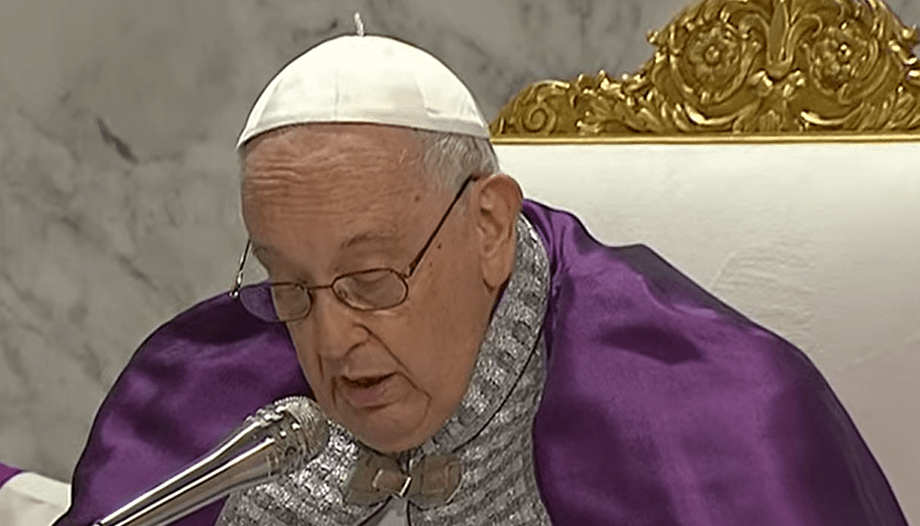
 Pope calls for ceasefire in Ukraine as Lent begins
Pope calls for ceasefire in Ukraine as Lent begins